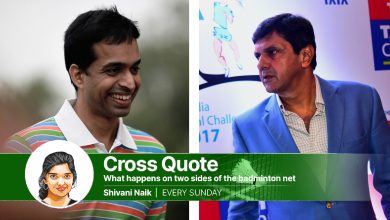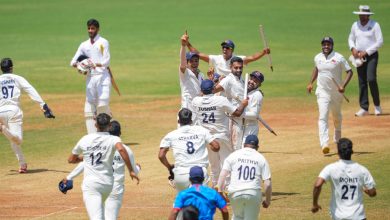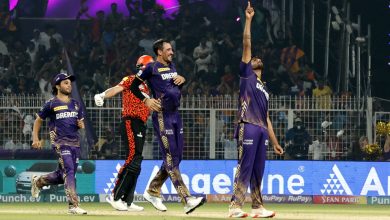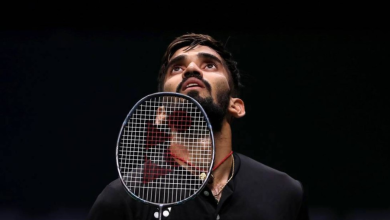Graham Reid scapegoated for India’s embarrassing hockey World Cup show

Graham Reid came to India fearing he’d ‘lose the job in three months’. Instead, he stayed on as the chief coach for longer than any of his predecessors. And during this four-year period, the Australian learnt – and passionately sang – the national anthem, instilled a sense of calmness in the perennially chaotic world of Indian hockey and guided the team to unprecedented heights, including a return to the Olympic podium after four decades.
On Monday, a day after Germany were crowned champions and a week after India’s embarrassing exit from the World Cup, Hockey India claimed Reid had resigned as the coach. The federation did not clarify if any effort was made to convince the coach, who was responsible for India’s bronze medal at the Tokyo Olympics, to stay back. Or whether Reid, too, was allowed to leave as easily as Robin Arkell, the former strength and conditioning special, who is now an integral part of the backroom staff of world champions Germany.
It’s typical of Indian hockey that after just one setback, the adminration has made the coach the scapegoat instead of addressing the deeper, underlying issues – from lack of a grassroots programme to no professional league.
Rourkela: Indian and South African players vie for the ball during their classification match at the 2023 Men’s FIH Hockey World Cup, in Rourkela, Saturday, Jan. 28, 2023. India won the match 5-2. (PTI Photo)(PTI01_28_2023_000320B)
Despite these problems, and overcoming the challenges thrown the pandemic, Reid guided the national team to the Olympic podium in Tokyo in what will undoubtedly go down as his biggest contribution to Indian hockey.
Reid was under no illusion that Covid was a part of the reason why he continued in the job for four years when the average life span of an Indian coach is a little less than 12 months. The pandemic and the consequent lockdown meant there were fewer matches, which in turn meant he got a longer rope compared to the previous coaches.
The Australian, who has been working with a pacemaker in his heart since 1996, used this period to stabilise Indian hockey on and off the pitch. The continuity in the playing group, too, gave Reid the time and space to leave his mark on the team.
Although it wasn’t always the case in the World Cup for reasons beyond comprehension, India have turned into a fine counterattacking unit that was also patient on the ball when the situation demanded – instead of forcing entry, the team learnt to hold possession, pass the ball around and wait for gaps to open up, something they weren’t proficient in earlier.
But despite the Olympic medal, the team was always a work in progress. And Reid knew it.
After the Olympics, his priority became to improve shooting inside the circle. Stats revealed that – to borrow a football terminology – India’s xG (expected goals) were always pretty high but that mostly did not reflect in the scorelines.
A major part of the last 12 months was spent fixing this anomaly, along with the way in which the team pressed (adopting a two-third court press instead of the usual full-court or half-court press India employed) as well as the players’ off-the-ball running.
The movement off the ball was an area legendary Australian coach Ric Charlesworth, too, pointed out as one of the reasons why India could not get past New Zealand in the playoff match for a place in the quarterfinals.
Citing an example of a pass New Zealand’s Simon Child in the build-up to the first goal, Charlesworth, on whose recommendation Reid applied for the job in 2019, had said: “… Nilakanta (Sharma) wasn’t sharp enough to get close. If he gets closer, it’s harder for Child to get the ball across. It’s never one thing. It’s a range of things. The ball got fired past Harmanpreet, he wasn’t (sharp)… someone gets a touch on the ball and it rolls over the sideline rather than going to someone who is standing in front of the net.”
With Reid feeling it is ‘now time to step aside and hand over the reins to the next management’, this phase of his project remains incomplete. And given that it will be the next logical step in the evolution of the team, it is safe to assume it will also be on top of the agenda of his successor, who won’t have a lot of time to ease into the demanding role.
This is a busy year for India with matches almost every second month, including tours to England and the Netherlands, but everything the team does will be designed to win the gold medal at the Asian Games.
The multi-discipline event, which got postponed to September-October 2023 due to the pandemic, will provide teams with the first shot to book an Olympic berth, which goes to the winners. The resurgence of South Korea, the sheer doggedness of Malaysia and a banana skin team in the form of Japan will make India’s path to the Asian Games final trickier than expected – and lest we forget Pakan who, despite their troubles, are always in the mix.
“I have the utmost respect for the Asian Games, how difficult a tournament it is,” Reid had said last week.
With Reid gone, India’s task to reclaim the gold medal they won in 2014 just got tougher.
Packed year for India
March: FIH Pro League (India host Australia and Germany)
May-June: FIH Pro League (India travel to England to face Great Britain and Belgium)
June: FIH Pro League (India travel to the Netherlands to face the Dutch and Argentina)
September: Asian Games in Hangzhou, China
* A home test series against Australia and possible participation in the Azlan Shah Cup are also on the cards







